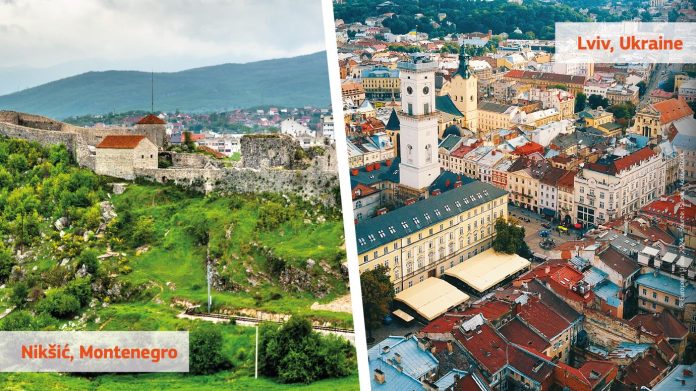Lviv and Nikšić have been short-listed in the competition for the title of European Capital of Culture 2030 in an EFTA/EEA country, candidate country or potential candidate. A panel of 10 independent experts recommended this shortlist following a digital meeting on 16 December.
The European Commission invited applications from interested cities in November 2023. Lviv (Ukraine) and Nikšić (Montenegro) submitted applications by the deadline of 16 October 2024.
Being shortlisted for the title can result in significant cultural, economic and social benefits for the cities concerned, providing that their bid is part of a longer-term culture-led development strategy.
The cities have now until the summer 2025 to complete their applications. The panel will meet in the autumn 2025 to recommend one city to become, in 2030, the fourth European Capital of Culture in an EFTA/EEA country, candidate country or potential country, after Novi Sad (Serbia) in 2022, Bodo (Norway) in 2024, and Skopje (North Macedonia) in 2028.
In the same year, there will be two other European Capitals of Culture, one in Belgium (pre-selection in October 2024) and one in Cyprus (the pre-selection meeting will take place in late February 2025). How cities become European Capitals of Culture
The selection procedure has 2 rounds:
a pre-selection round, following which a shortlist of candidate cities is drawn up
a final selection round approximately nine months later.
For the competition between cities in an EFTA/EEA country, candidate country or potential candidate participating in the Union’s programme Creative Europe, a panel of 10 independent experts designated by European Union institutions and bodies examine the applications, and recommend a short-list and – in the second round –, the selected city to the European Commission.
The selected city is then officially designated by the European Commission.
The bidding cities should prepare a cultural programme with a strong European dimension and must have a lasting impact and contribute to the long-term development of the city. The cities must also show that they have the support from the relevant public local authorities and the capacity to deliver the project.
Background
Born in 1985 from an idea of the then Greek Minister of Culture, Melina Mercouri, the European Capitals of Culture have grown into one of the most ambitious cultural projects in Europe and one of the best known – and most appreciated – activities of the EU. Their objectives are to promote the diversity of cultures in Europe, to highlight the common features they share and to foster the contribution of culture to the long-term development of cities.


